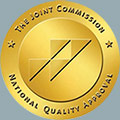Detoxification, also referred to as detox, is the process that cleanses one’s body of foreign substances, and yes; it is often painful.
Any person that has habitually abused drugs and/ or alcohol has likely developed a tolerance to the abused substance or substances. When a drug tolerance is built, one’s body begins to rely on the substance to function optimally. If the body lacks the previously abused substance, it will react accordingly, and withdrawal symptoms will ensue. Withdrawal symptoms are the body’s way of managing the removal of a substance or substances that have been relied upon for a significant period. Certain factors will undoubtedly weigh into the level of difficulty and severity of withdrawal symptoms. The type of substance or substances abused, one’s personal health history, the length of time a person abused a substance or substances, the potency of the substance, the frequency of use, as well as the any comorbid disorders will all factor into one’s detox experience and associated withdrawal symptoms.
Alcohol Withdrawal: Delirium Tremens
Though alcohol is a legal substance for consumption in America (for individuals over the age of twenty-one), the risks associated with detox are immense, as it is known to be among the most dangerous substances to quit. Alcohol is a psychoactive, central nervous system depressant. The National Institute on Alcohol Abuse and Alcoholism explains that “alcohol interferes with the brain’s communication pathways, and can affect the way the brain looks and works” by slowing down vital functions in one’s body. Physical effects of alcohol withdrawal typically begin within eight hours of one’s last alcoholic drink. Common withdrawal symptoms may include, but are not limited to, any combination of the following examples, provided by Verywell Mind:
- Nausea
- Vomiting
- Constipation
- Diarrhea
- Fever
- Headaches
- Increased heart rate
- Seizures
- High blood pressure
- Panic attacks
- Muscle pain
The most dangerous withdrawal symptom associated with detoxing from alcohol is called delirium tremens. Delirium tremens is scientifically defined as “the most severe form of ethanol withdrawal, manifested by altered mental status (global confusion) and sympathetic overdrive (autonomic hyperactivity), which can progress to cardiovascular collapse.” Delirium associated with excessive alcohol consumption has been known since antiquity. The undeniable connection between alcohol abuse and delirium tremens dates to 1813 when DT was first recognized and universally accepted as a disorder specifically attributed to alcohol abuse. Delirium tremens, when not medically tended to can become fatal. The death rate from delirium tremens is thirty-seven percent (without proper treatment) and fifteen percent (with proper treatment).
For Information and Support
Contemplating detox can be a very challenging time. Before any individual can begin to work on the underlying issues contributing to their substance abuse problem, they must be separated from the substances in their systems. If you are concerned for yourself or a loved one regarding substance abuse, and/ or addiction we recommend reaching out for help as soon as possible. The earlier you seek support, the sooner you and your loved ones can return to leading happy, healthy, and fulfilling lives. Sherwood Detox offers a stand-alone detox program. For additional information on detox, please do not hesitate to contact us at: 818-626-9959 or feel free to email us anytime. One of our trusted counselors is available to talk and discuss how we can best support you on your journey.









